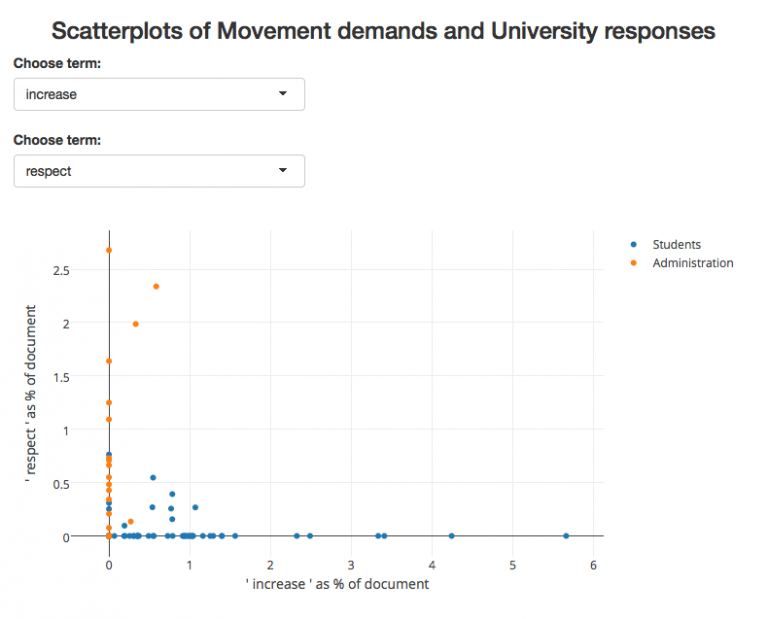Over the last year Dr. Mark Ravina and history major TJ Greer have collaborated on a digital humanities project examining the rhetoric of student activism and university administration responses through text mining. The project was recently profiled by the editors of the website Digital Humanities Now, where the study’s findings will appear in a series of blog posts. Read an excerpt from their first post below (“Mining the Movement: Some DH perspectives on student activism”) and check out the full run here.

This first blog reflects our first preliminary results, but even at this early stage we feel comfortable with two declarations: one empirical and one political. The empirical observation is that university administrations are largely talking past students, employing a radically different vocabulary than that of student demands. Our political observation is that universities need to address student demands seriously and directly, even if that means admitting that some problems are deeply structural and that solutions will require decades rather than months or years.


